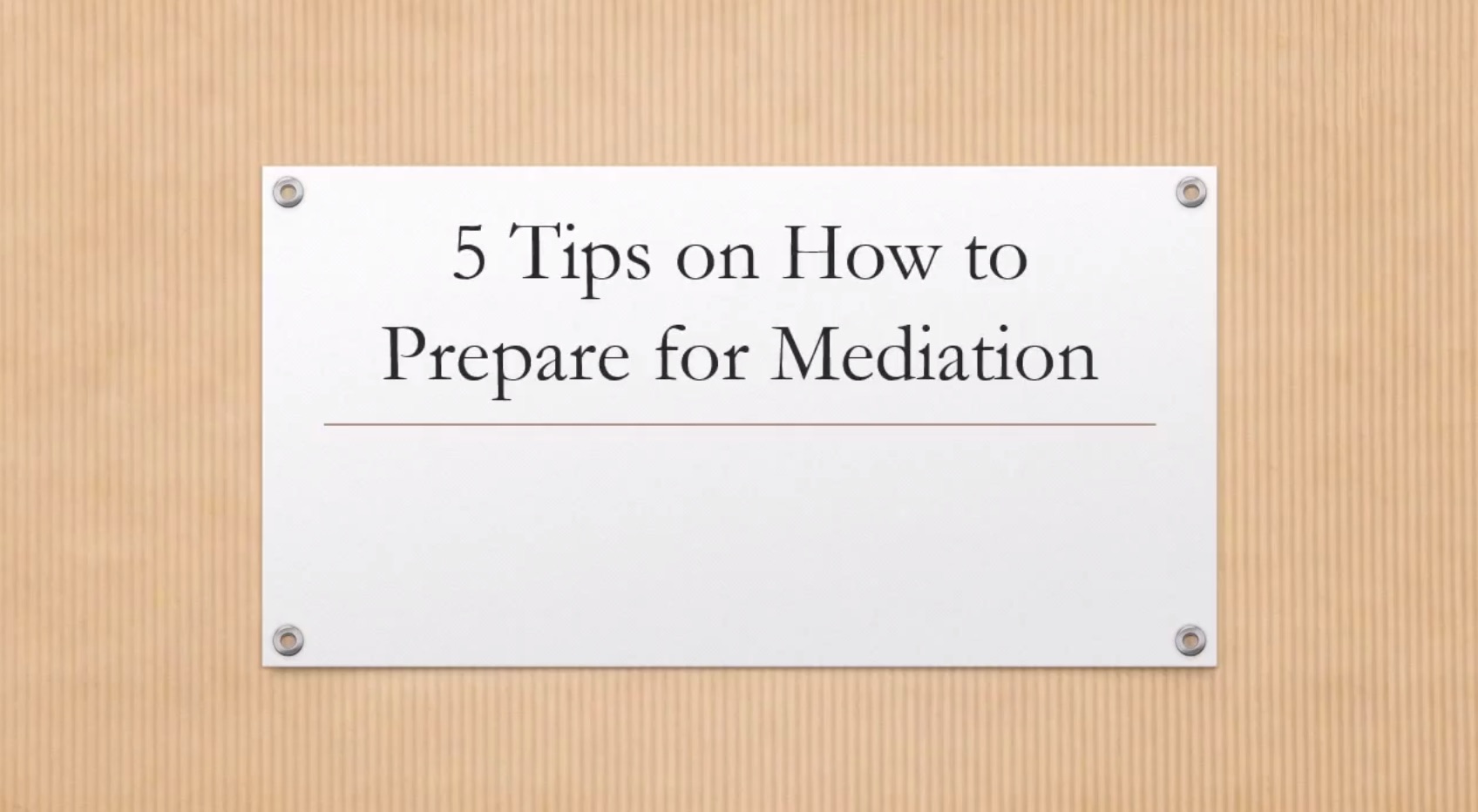Do I have to bring an attorney to mediation?
No you do not have to bring an attorney to mediation. Attending mediation with an attorney is completely your choice.
If you would like the legal advice of an attorney at mediation, then you should retain an attorney to represent you at mediation. If you have already retained an attorney, it is likely he or she will attend mediation with you.
Another option may be to have an attorney you can call during mediation if you have any questions that would require legal advice.
[divider style=”solid”]
Do I have to file with the court before mediation?
No. While filing a complaint with the court begins the legal action with the court, you are not required to file with the court before you attend mediation.
[divider style=”solid”]
Is mediation required in my case?
Sometimes mediation is required by law in a case before it may proceed to the courtroom before a judge. Some of these cases include any contested divorce matter, any contested legal action involving minor children and a parenting plan, and a contempt proceeding that involves the violation of a parenting plan.
[divider style=”solid”]
What is the best time to attend mediation?
There is no set time that you must attend mediation in your case. However, in many instances attending mediation early helps avoid a lengthy litigation process and keep costs down, by narrowing down the agreed upon and contested issues and even reaching settlement sooner rather than later.
In other instances you may not be ready to attend mediation until you have gathered all the documentation you would need to reach an informed agreement. However, attending mediation early may narrow down what information still needs to be gathered, and the parties may schedule more than one mediation session. It is also important to consider your emotional well-being in the timing of mediation.
[divider style=”solid”]
If the mediator is an attorney, can he or she represent me and/or the other party?
The mediator is a neutral third party that cannot represent either party to the mediation. The mediator is also not allowed to give any legal advice. If the mediator is an attorney he or she may provide legal information, but not advice.
[divider style=”solid”]
Can the mediator draft documents related to my legal action if we reach an agreement?
Yes. The mediators at Long Okura are licensed attorneys in Utah, and therefore may draft the agreement and any relevant documentation to complete the legal proceeding. If the mediator is not licensed in Utah, he or she may not draft legal agreements or pleadings for the parties.
See Rule 2.4 of the Utah Rules of Professional Conduct for more information.
[divider style=”solid”]
What happens if we do not reach an agreement at mediation?
If you do not reach an agreement at mediation your case will continue in the litigation process and you will have a day in court before the judge to reach a resolution to the dispute.
[divider style=”solid”]
If I go to mediation do I still have to go to court?
In many cases if you attend mediation and reach a full agreement you will never have to go to court for a hearing or trial.
[divider style=”solid”]
What do I need to bring to mediation?
It is recommended to bring with you any information you will need to reach an informed decision and agreement regarding the dispute. However, this is not absolutely necessary, and again the parties may schedule and attend mediation to determine what issues are already agreed upon, contested, and what additional information is needed to reach an informed decision.
If you are getting a divorce, helpful documentation may include financials like bank statements, retirement statements, credit card statements, pay stubs, tax returns, and real property valuations to divide all of these marital assets and debts. If you cannot bring these documents with you, having access to this information via the internet may be useful.
[divider style=”solid”]
Do I have to sign an agreement at mediation?
No. The mediation process is for you as a party to the dispute and you do not have to sign any agreement you are not prepared to sign.
[divider style=”solid”]
What happens if we reach a verbal agreement at mediation?
A verbal agreement may be memorialized in writing and signed by you and the other party after mediation. However, if an agreement is not signed at mediation the verbal agreement is not binding on you or the other party. Mediation is a confidential process and the exception to this would be a written agreement that is signed by both parties.
[divider style=”solid”]
We hope you find this information helpful. If you have any additional questions, please feel free to contact us or visit our Utah mediation page for more information on our services.










Thanks for mentioning that people can go to mediation before they file for divorce. Way too many go straight to litigation without realizing how much money they can save by simply mediating their differences.
Thanks Luke! I agree that a lot of time and expense can be saved, and I definitely hear this question all the time.